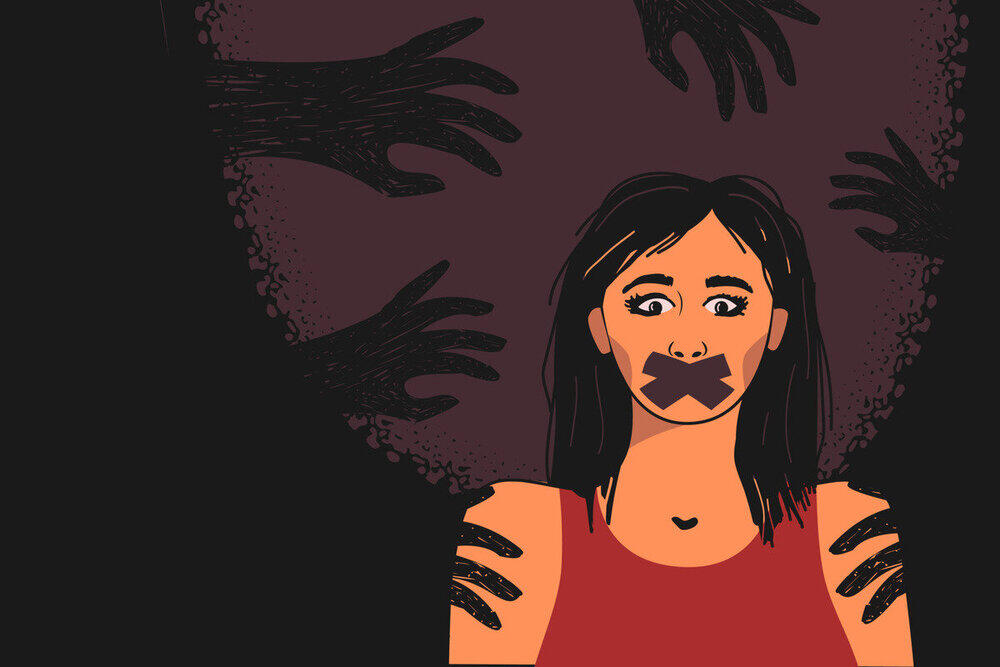Trauma Bonds: The Silent Struggle in Abusive Relationships - A Psychotherapist's Perspective
March 27, 2023 - Reading time: 6 minutes

Unraveling the Complexities of Trauma Bonds and the Healing Journey of a Client Named Adrian. Article written from guest author Dr. Bina Convey.
As a Counsellor and Psychotherapist with extensive experience working within the National Health Service, workplace settings, and private practice, I have encountered countless individuals struggling with the effects of trauma bonds in their relationships. Trauma bonds are powerful emotional attachments that develop out of a repeated cycle of abuse, devaluation, and positive reinforcement. These bonds can have a significant impact on a person's mental health, and can be particularly challenging to address and overcome.
In this article, I will delve into the intricacies of trauma bonds and how they affect individuals. I will also share the story of Adrian, a client who suffered from a trauma bond, and the therapeutic approach I suggested for his recovery.
Understanding Trauma Bonds
Trauma bonds typically follow a cycle of abuse and rest on an imbalance of power. The cyclical nature of these bonds depends on intermittent reinforcement, making it difficult for the abused person to leave the relationship. The power imbalance can further reinforce feelings of helplessness and dependency on the abuser, creating an almost inescapable emotional connection.
People with a history of trauma, including those with ADHD, may be more vulnerable to developing trauma bonds in their relationships. ADHD can exacerbate the feelings of powerlessness and confusion that often accompany trauma bonds, making it even more challenging to break free from the cycle of abuse.
Adrian's Story
Adrian, a 35-year-old man with ADHD, came to my private practice seeking help for his struggles in a long-term, abusive relationship. He described feeling trapped and unable to leave his partner, despite recognizing the abuse and its impact on his mental well-being. Adrian's ADHD symptoms, including impulsivity and difficulty focusing, contributed to his inability to assert himself and set boundaries in his relationship.
As we explored the dynamics of his relationship, it became clear that Adrian was experiencing a trauma bond with his partner. He shared how the abuse would be followed by periods of affection, love, and promises to change. These moments of positive reinforcement confused Adrian and made him hopeful that the relationship could improve. The cycle of abuse and intermittent kindness perpetuated the trauma bond, making it increasingly difficult for Adrian to break free.
Therapeutic Approach for Adrian
In working with Adrian, I employed an integrative relational counseling approach, focusing on building a strong therapeutic alliance and tailoring the therapy to his unique needs. We addressed several key areas to support his journey towards healing and breaking the trauma bond:
-
Psychoeducation: I provided Adrian with information about trauma bonds and their impact on his mental health, helping him to understand the dynamics of his relationship and recognize the abuse for what it was.
-
Emotional Regulation: We worked on strategies to manage the intense emotions that arose when considering leaving his partner, including mindfulness, grounding techniques, and self-soothing activities.
-
Boundary Setting: I guided Adrian in establishing and maintaining healthy boundaries in his relationship, as well as in other areas of his life.
-
Self-Compassion: We focused on fostering self-compassion and countering the self-blame and negative self-talk that often accompanies trauma bonds.
-
ADHD Management: As ADHD played a role in Adrian's vulnerability to trauma bonds, we discussed ADHD-specific strategies to improve his overall functioning and mental well-being.
The Healing Journey
Breaking a trauma bond is a complex and challenging process that requires time, patience, and support. Adrian's journey towards healing was filled with setbacks and moments of doubt, but through
perseverance and commitment to therapy, he gradually began to see progress. As Adrian developed a deeper understanding of the trauma bond and its impact on his life, he gained the strength and courage to make significant changes.
Over time, Adrian started to assert his boundaries with his partner, despite the emotional turmoil and fear of retaliation. He learned to prioritize his own well-being and self-care, focusing on activities and relationships that brought him joy and fulfillment. As he built a support network outside of his abusive relationship, Adrian began to feel less isolated and more empowered to take control of his life.
Addressing the ADHD component of Adrian's struggle was also vital in his healing journey. We explored various ADHD management strategies, such as medication, behavioral therapy, and organizational skills training, to help him better manage his symptoms and improve his overall functioning. As Adrian's ADHD symptoms became more manageable, he found it easier to navigate the complexities of his relationship and make informed decisions regarding his well-being.
Conclusion
Trauma bonds are complex emotional attachments that can have a profound impact on an individual's mental health and quality of life. In Adrian's case, the combination of ADHD and a trauma bond created a particularly challenging situation. However, with the support of an integrative relational counseling approach and a focus on both trauma bond and ADHD management, Adrian embarked on a transformative journey towards healing and self-discovery.
Breaking free from a trauma bond is a difficult and often painful process, but it is possible. If you or someone you know is struggling with a trauma bond, seeking professional help from a qualified therapist can be a crucial step towards recovery and rebuilding a life free from abuse. In cases where ADHD is also a factor, it is essential to address the specific challenges associated with the disorder to ensure a holistic approach to healing and personal growth.

